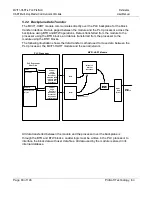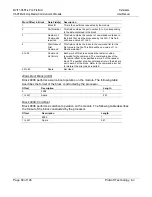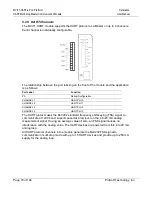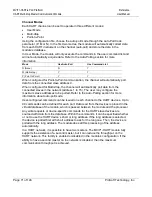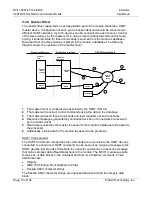
MVI71-HART ♦ PLC Platform
Reference
HART Multi-drop Master Communication Module
User Manual
Page 72 of 146
ProSoft Technology, Inc.
Auto-Poll Modes
Each HART channel can be set to operate in three different modes:
Point-to-Point
Multi-drop
User Mode
Using the configuration file, choose the auto-poll mode through the Auto-Poll Code
parameter (P, M, or N). In the first two modes, the module will automatically collect data
from each HART instrument on the channel (auto-poll) and store the data in the
module's database.
In User Mode, the module will only execute the commands in the user command list and
will not automatically acquire data. Refer to the Auto-Polling section for more
information.
Mode
Use Auto-Poll
Use Command List
N (None)
N
Y
M (Multi-drop)
Y
Y
P (Point-to-Point)
Y
Y
When configured for Point-to-Point communication, the channel will automatically poll
data from the connected slave address 0.
When configured for Multi-drop, the channel will automatically poll data from the
connected slaves in the network (address 1 to 15). Refer to the Auto-Polling section for
more information about auto-poll mode.
User-configured commands can be issued on each channel to the HART devices. Up to
99 commands can be defined for each port. Data read from the devices is placed in the
virtual database of the module, which is passed between the module and the processor.
Any write requests or device-specific commands for the HART slave devices are
sourced with data from the virtual database, or from a configured constant data block.
Within the commands, it can be specified whether or not to use the HART device's short
or long address. If the long address is selected, the device is polled first with short
address to ask for the long one. Then, the device is polled with the long address. The
module does this processing automatically.
In a HART network, it is possible to have two masters. The module fully supports the
existence of a second master, but it can reduce the throughput on the HART network.
This facility is enabled or disabled in the module's configuration. If the ability to have a
second master on the network is disabled, then the maximum communication throughput
is achieved.






